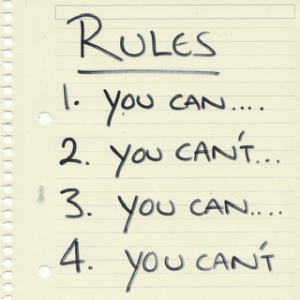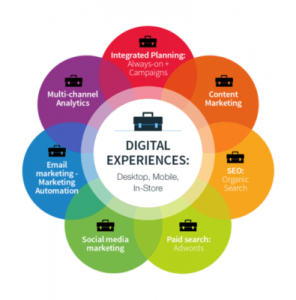Accountability at work is a relatively new concept that implies that everyone resumes individual authority over their decisions, results, actions and attitude. With the rise of agile methodologies and the whole new concept of doing business, accountability has emerged as a novel necessity.
The whole point of this concept is that everyone identifies their positions in all given settings and situations voluntarily, rather than being delegated a task. It implies responsibility on all kinds of levels and is, as such, an invaluable skill at work.
Accountability in a Workplace
In a workplace, accountability means that everyone is behaving responsibly, thus bringing collective success one step further towards a sustainable future. With no one pointing fingers at others, it is only natural that conflicts at work are at a minimum level.
By extension, accountability inspires commitment that inevitably leads to higher productivity and performance. Accountability builds confidence within teams because everyone knows they can rely on each other.
It is no wonder, then, that accountable executives (or rather, leaders) are generally more liked and respected than those employing the traditional business model of task delegation. One notable reason why this is so (on top of the abovementioned) is that accountable leaders admit their mistakes and actively engage in searching for sustainable solutions. In this way, issues that may occur never escalate, which helps everyone involved to gain more self-confidence, among other traits.
Reversely, unaccountable employees don’t contribute to overall organizational and team success, and can be seen as an organization’s weak spot. This is critical when unaccountable employees deal with customers, as business reputation is likely to suffer.
Gig Employee Accountability
Things are more than transparent when it comes to office work, but how do remote teams and individuals build accountability?
This seems to be confusing to some new gig employees (and of late, there has been a rise of people working from home, due to understandable reasons). In truth, accountability (like so many other aspects of good business practices) relies heavily on communication and, in some cases, team building.
Contrary to popular belief, online team building activities are no less efficient than the established ones. With the plethora of online communication tools available to everyone, people can easily meet online and perform all kinds of social activities.
Building Accountability
There are numerous ways to build/improve accountability at work, all of which are rooted in personal goals and the company image the employee has. Obviously, if someone isn’t satisfied with their position or organization, they won’t be motivated to improve their accountability.
Be Goal-Oriented
First of all, one should build a goal-oriented mindset. The goals need to be realistic; if they aren’t, the issue should be discussed immediately with the rest of the team, so that a new plan can be made and all tasks can be executed successfully in the future.
Goals should be tied to specific metrics that define the desired benchmarks and by no means vague and poorly defined. When there are metrics, everyone will be able to understand their part in the task execution process, and thus clearly stick to the areas for which they are directly responsible.
Clearly, should an aspect of the task fail or underperform, the person in charge of it will resume accountability, in which way the rest of the team will be capable of coming up with the best solutions to the overall process.
Define Priorities
To decrease the chances of things going wrong, as ever, it is crucial to define priorities. Forget all about multitasking and overworking yourself. High priority tasks should always come first. If there is some extra time left when they’re finished, you may move on to the next, less pressing task, but only if it’s sustainable. E.g., if there are 15 minutes left before the end of the working day, better leave the next task for the next day.
Communicate Actively and Effectively
Next on and as mentioned above, communication is the key to getting things back on track when an issue arises. All leaders and managers have to deal with poor performance at some points in their career, which is not a huge problem if accountability is in place.
It is essential to discuss the issue as soon as possible no matter how uncomfortable it may be because the longer it waits, the bigger the damage will become. Normally, the first step would be identifying the cause and changing the approach accordingly. If the cause is poor motivation, accountability is absent. A good leader knows how to motivate employees, so the issue should be addressed promptly.
In most cases, managers add extra pressure, which can often prove to be counterproductive, especially if the diagnosis of the cause is wrong. For example, if the employee lacks skills or expertise, added pressure will only serve to add to their stress levels and decrease their motivation further.
When working from home, written communication is sometimes better than online meetings, because it causes less stress and also because both parties will have enough time to think about the issue at hand and come to a sustainable solution without any conflicts.
Engage in Continual Learning and Familiarize Yourself With Company Updates
Accountability is a two-way road. No matter how motivated the employee, if the managerial side isn’t appreciative, the employee will get discouraged sooner or later. That’s why it is important to continually improve your skills and abstain from avoiding company training, seminars and similar activities.
All of these provide employees with the opportunity to grow both professionally and socially, as people will get to engage with one another, thus learning more about themselves and the team as a whole.
Further out, good business practice is to keep employees continually updated about the tasks, projects and company policies. Don’t slack on these, as any changes are likely to change the narrative and the way teams work in general.
It is a well-known fact that employees who receive regular feedback are more motivated than those kept in the dark about their achievements. For some reason, the latter practice is still omnipresent, but things are looking up.
Be Self-Confident
Make note of the input and work on improving your weaknesses so that you won’t feel down when an issue arises. It’s important to know that you have given your best, so that there are no regrets even if the result is poor. In this way, you can also learn more about the skills you should improve and thus ensure continual professional growth.
Overall, don’t exert yourself. Take regular breaks, work out, polish your skills and never be afraid to own up to both the successes and the failures. It’s the only way to keep moving forward and a certain road to professional success.
Business & Finance Articles on Business 2 Community
(46)





